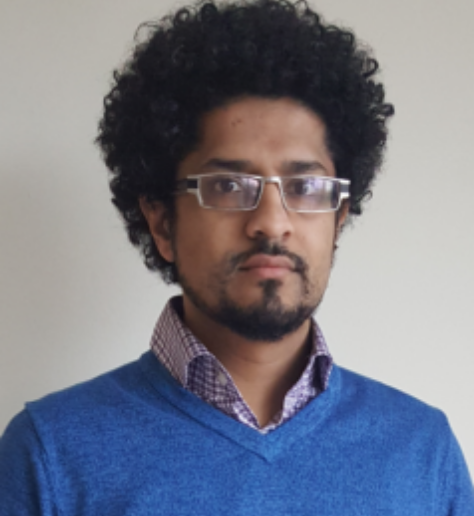Affiliate Scholars

Nafay Choudhury
Nafay Choudhury
Nafay Choudhury has been an IGLP Residential Fellow since 2019. He is a PhD candidate at the Dickson Poon School of Law, King’s College London. He is Senior Research Fellow at the Afghan Institute for Strategic Studies, and was previously Assistant Professor of Law at the American University of Afghanistan, which he first joined as a Postdoctoral Fellow at Stanford Law School for the Afghanistan Legal Education Project. He helped to establish Afghanistan’s first English-medium law program, where he taught and researched in the areas of contract law, legal pluralism, economic sociology, and the rule of law.
Nafay has been a Visiting Research Scholar at the Max Planck Institute for Comparative and International Private Law in Hamburg, and a Researcher for the Center for Islamic Legislation and Ethics in Doha. Since 2012, he has worked as a consultant on law and development projects in Afghanistan, Bangladesh, Egypt, Jordan, and Malaysia. He holds a JD/BCL (McGill), MA (Queen’s, Canada) in economics, and BA (McGill) in economics.
Nafay’s doctorate involves an ethnographic study of Afghanistan’s money exchangers to understand the functioning of informal institutions in unstable environments. It reveals the unique ability of certain local-level communities to not only sustain private governance, but also to play a role in reconstituting those institutions sanctioned and legitimized by the state. He has received various grants to explore issues of social and legal ordering, economic regulation, and social networks, and has published widely in these areas. He was the lead researcher for a project supported by the Government of the Netherlands on the distributional effects of property reforms in Kabul’s peri-urban spaces. Nafay is also an avid home cook.

Richard Clements
Richard Clements
Richard Clements has been a Residential Fellow since 2019. He recently completed his doctoral research at the Lauterpacht Centre for International Law, University of Cambridge. Richard also holds an LL.M. from Leiden University and an LL.B. (hons) from Queen’s University Belfast. He has taught in both undergraduate and postgraduate law courses at Cambridge, and served as Co-Editor-in-Chief of the Cambridge International Law Journal from 2017-18. He has also worked in a professional capacity at the International Criminal Court, Yugoslavia Tribunal, and the Northern Ireland Human Rights Commission. Richard has published in several journals including the Leiden Journal of International Law and the Journal of International Criminal Justice and is currently working on amanuscript for his first monograph.
Richard’s research explores the origins, uses, and effects of management thought and tools in global governance. His doctoral thesis, entitled ‘Governing International Criminal Justice: Managerial Practices and the International Criminal Court’, examined the meaning- and identity-making work that managerial tools such as strategic plans, audit reports, and appraisal systems, perform in the context of international criminal justice. As Residential Fellow, Richard will investigate management’s discursive effects vis-à-vis target populations such as ICC victims and how management as a body of techniques combine with law and institutions to make global justice govern atrocities. Richard is broadly interested in socio-legal theory, international organisations and transnational ethnography drawing on critical legal theory, Third World Approaches to International Law, and Critical Management Studies.

Nadia Lambek
Nadia Lambek
Nadia is a Doctor of Juridical Science (SJD) candidate at the University of Toronto, and a human rights lawyer, researcher and advocate focused on food system transitions and the rights of working people. Her current research explores how the law and legal claims (specifically the right to food sovereignty and peasants’ rights) are framed by transnational agrarian movements and the possibility and limitations of institutionalizing these emerging rights in international fora. She is actively engaged in developing the field of food law and policy in Canada, as a founding member of the Canadian Association for Food Law and Policy and host of the 4th Canadian food law and policy conference at the University of Toronto (fall 2019).
Nadia’s publications include Rethinking Food Systems: Structural Challenges, New Strategies and the Law (Springer, 2014) (edited with Priscilla Claeys). She is currently adjunct faculty at Vermont Law School teaching courses on global food security governance.
She regularly collaborates with civil society organizations on issues of food system governance, including working with the Civil Society and Indigenous Peoples’ Mechanism to the UN Committee on World Food Security on a 2018 report monitoring realization of the right to food. Before beginning her SJD, Nadia practiced law, focusing on the promotion and protection of workers’ rights, union-side labour law, and human rights and served as an advisor to United Nations Special Rapporteur on the right to food, Olivier De Schutter. Nadia is a former clerk of the Ontario Court of Appeal and co-Editor-and-Chief of the Yale Human Rights and Development Law Journal. She has a JD from Yale Law School and BA from Brown University.